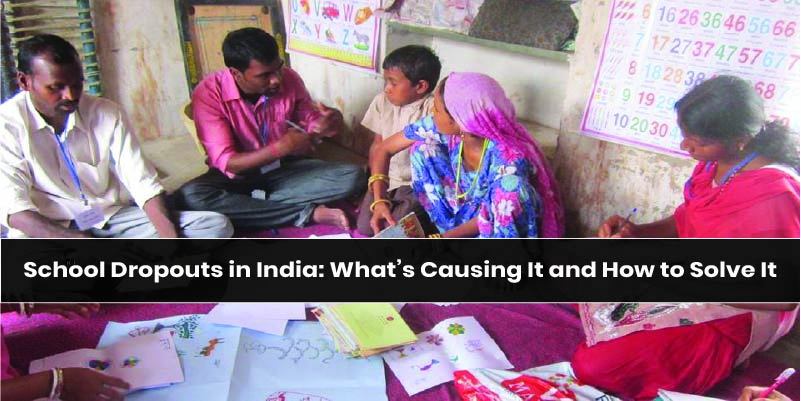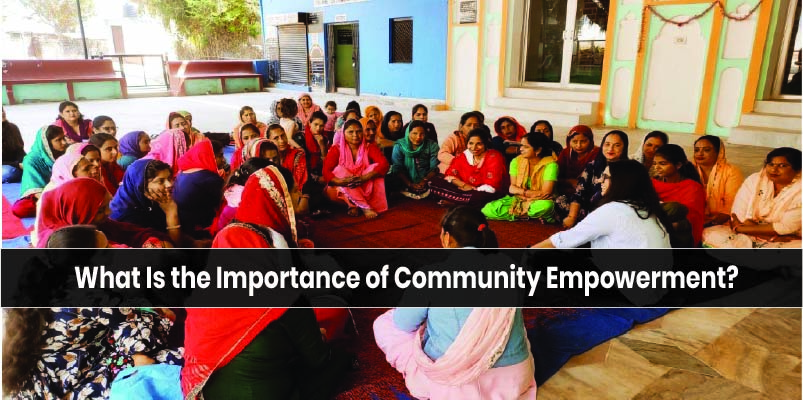Across India, there are still far too many children who find it hard to stay in school. People do recognise how important education is, but that awareness alone hasn’t fixed the problem. Progress has happened in places, but there’s still a great deal to sort out. In this effort, an educational support NGO in Odisha plays a vital role in helping children stay enrolled and continue their learning journey.
The dropout rate in schools, particularly in rural and marginalised communities, reflects a deeper problem that is tied to poverty, gender inequality, and limited access to proper facilities. When a child leaves school early, it’s not just their future that’s affected. It also impacts the community and the country as a whole.
Understanding Why Students Drop Out
Children drop out of school for all sorts of reasons, and quite often, those reasons are connected, which makes the issue more difficult to tackle.
- Child Labour
For families facing money troubles, it’s not unusual for children to start working early. They might be in the fields, at a local factory, or helping out in someone’s home. With all the pressure to bring money home, school can slip away quietly and sometimes it does not come back.
- Early Marriages
Early marriage still stops a lot of girls from staying in school. Sometimes it’s down to tradition, sometimes it’s about money, but either way, it often happens before they’re old enough to decide for themselves.
- Lack of Interest in School
It’s not always about poverty or big struggles. Some pupils just stop caring because school doesn’t feel like it matters. If the teaching is dull or the lessons don’t link to real life, staying motivated becomes really hard.
- Gender Inequality
Girls face more barriers than boys when it comes to education. Safety issues, family responsibilities, and deep-rooted attitudes all hold them back. In many households, boys are chosen to continue their studies, while girls are kept at home or married off too soon.
- Health and Nutrition Issues
Poor health can also keep children out of school. Malnutrition, chronic illnesses, and lack of access to basic healthcare mean some students miss lessons frequently, fall behind, and eventually drop out.
- Limited Parental Support
Parents who haven’t received formal education themselves may not always recognise its value. Some might not be able to help with homework or understand school requirements, while others might see education as unnecessary if short-term survival is the priority.
Must Read: The importance of Educational Support NGO in Odisha
What Can Be Done?
Fixing school dropout rates takes more than rules and regulations on paper. What really works is getting involved. An NGO supporting education in India usually works closely with schools, families, and community leaders to bring about real change that lasts.
- Involving Parents and Communities
Parents play a big part in keeping children in school. With the right support and local discussions, many begin to see just how far education can take their kids.
- Improving School Infrastructure
Things like working toilets, clean water, and safe classrooms might not sound like much, but they do matter. When a school feels safe and not run-down, kids are more likely to come in and stick with it.
- Making Learning Meaningful
Some children just get bored at school. If lessons don’t feel useful or are too hard to follow, they stop paying attention. Giving teachers better training and making learning more hands-on can really help.
- Supporting Girls’ Education
Encouraging equal access to education for girls is essential. Scholarships, safe transport, and gender-sensitive programmes help bridge the gap and give girls a fair chance.
- Providing Health and Nutrition Support
A warm meal at lunchtime, a basic health check now and then, and a bit of hygiene advice can go a long way. When kids feel alright in themselves, they’re far more likely to show up and actually learn something.
- Reducing Dependence on Child Labour
Families that rely on their children to work need other options. Some organisations support alternative income sources or connect families with government schemes, helping them prioritise education.
A Step Towards Change
In many places, things are starting to improve. With local councils, schools, and community-led groups working side by side, more children are staying in school, learning in better conditions, and beginning to believe in brighter futures.
Conclusion
Reducing school dropout rates in India may be a tough journey, but it is not out of reach. Every child should have the chance to finish school and shape a better life. With continued support from the government, communities, and an educational support NGO in Odisha, we are already seeing hopeful signs of lasting change.
By facing the real problems and working side by side, we can shape an education system that works for every child. Team up with Abitech Foundation and be part of the change.
Frequently Asked Questions
- Why do so many children still drop out of school in India?
It’s because of poverty, early marriage, child labour, and schools that don’t feel engaging or safe.
- How can an educational support NGO in Odisha make a difference?
By helping families, improving school conditions, and keeping children motivated to stay in school.



